For children, play is more than just fun—it’s how they explore, learn, and grow. It helps them develop new skills, build confidence, and express themselves. For children with prosthetic limbs, play becomes even more important, as it allows them to adapt to their new limb in a natural and stress-free way.
At Robobionics, we understand that adjusting to a prosthetic can feel overwhelming at first. That’s why play-based learning is so valuable—it turns practice into something enjoyable, making the transition much smoother. Whether it’s through games, sports, toys, or creative activities, play helps children gain control, comfort, and confidence in using their prosthetic limb.
This article explores how play can support children in adjusting to prosthetic limbs, helping them become independent, active, and happy in their daily lives.
Why Play is Important for Kids with Prosthetic Limbs
Children learn best when they are engaged, having fun, and free to explore. Play offers a way for kids to experiment with movement, test their abilities, and gain strength without pressure.
Building Strength and Coordination
Using a prosthetic limb requires new muscle movements and coordination. Play helps children strengthen their muscles naturally while improving balance and control. Simple activities like stacking blocks, rolling a ball, or playing with puzzles can help kids develop the fine and gross motor skills needed for daily tasks.
Through play, children can practice gripping, holding, and releasing objects without fear of failure. These small movements are essential for writing, eating, dressing, and playing sports as they grow. The more they engage in playful activities, the easier and more natural their movements become.
Boosting Confidence and Self-Esteem
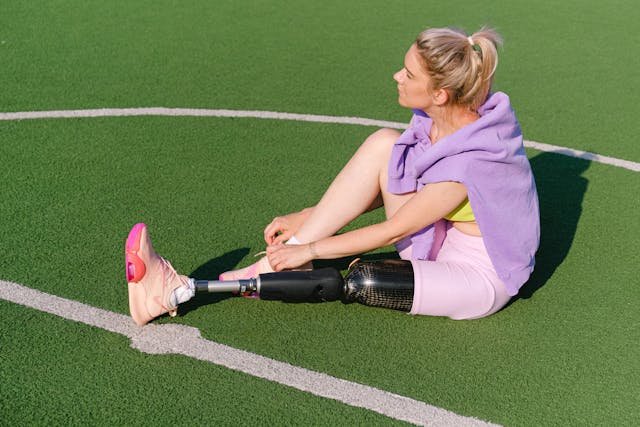
For some children, wearing a prosthetic limb may make them feel different from their peers. Play creates an environment where they can focus on fun instead of challenges. When they succeed in a game or complete an activity, they feel a sense of accomplishment, reinforcing the idea that they are just as capable as any other child.
When play is included in therapy sessions, children begin to see their prosthetic limb as a helpful tool rather than a limitation. They start to realize that they can run, climb, build, and create, just like their friends.
Encouraging Social Interaction
Many kids with prosthetic limbs worry about how others will treat them. Play helps break down these barriers, as games encourage teamwork, friendship, and interaction. When children engage in group activities, sports, or pretend play, they naturally build connections and confidence in social settings.
By participating in play with other children, they normalize the use of their prosthetic and develop the social skills needed to navigate school, friendships, and group activities with ease.
Using Toys and Games to Improve Prosthetic Use
Not all toys are just for fun—many can help kids learn to use their prosthetic limb effectively. The right toys encourage gripping, movement, and problem-solving, making everyday tasks easier over time.
Building Grip Strength with Manipulative Toys
For children using a prosthetic hand or arm, learning to grip and release objects smoothly is crucial. Toys that require picking up, holding, and placing objects help develop control. Some of the best toys for improving grip strength include:
- Stacking blocks or building sets like LEGO
- Shape-sorting puzzles
- Playdough or clay for squeezing and shaping
These activities help children get used to opening and closing their prosthetic hand, improving coordination without making it feel like “practice.”
Developing Balance and Movement Through Play
Children with prosthetic legs need to build stability, balance, and confidence while walking and running. Playful activities like:
- Kicking a ball to improve control
- Obstacle courses to encourage different types of movement
- Jumping games like hopscotch to improve weight shifting
These games help children feel more comfortable with movement, allowing them to adjust to their prosthetic limb in a fun and engaging way.
Interactive Technology and Virtual Play
Modern technology has introduced gamified rehabilitation tools, such as video games that respond to movement. These allow children to practice using their prosthetic limb in a digital environment, making therapy feel like an exciting challenge rather than work.
Some virtual reality (VR) games can even be tailored to help children practice fine motor skills, allowing them to develop hand-eye coordination and reflexes while having fun.
Sports and Outdoor Activities for Strength and Adaptation
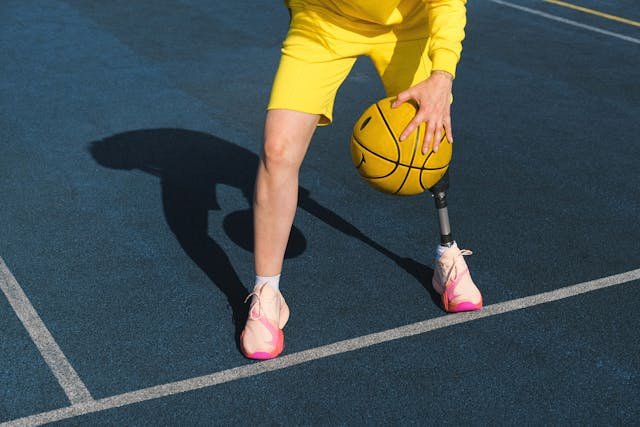
Sports provide a great way for children with prosthetic limbs to build strength, improve movement, and gain confidence. Many sports can be easily adapted for prosthetic users, allowing children to enjoy physical activities just like their peers.
Choosing the Right Sport for Your Child
Different prosthetics are designed for different types of movement. Parents should help children explore sports that align with their abilities and interests. Some great sports for children with prosthetics include:
- Swimming – Helps develop strength without putting pressure on joints
- Cycling – Improves balance and endurance
- Football or basketball – Encourages teamwork and mobility
- Martial arts – Builds discipline, flexibility, and coordination
Participating in sports helps children feel strong, capable, and included, boosting their physical and emotional well-being.
Making Playground Activities More Accessible
Playgrounds are an important space for kids to develop motor skills and social connections. Parents and caregivers can make playground activities easier by:
- Encouraging climbing and sliding to build coordination
- Supporting running and jumping games to improve agility
- Allowing time for trial and error, so kids can explore movement at their own pace
With encouragement and practice, children quickly learn how to move with confidence, making playtime a fun and empowering experience.
The Psychological Benefits of Active Play
When children engage in active play, they experience:
- Reduced stress and anxiety
- Improved mood and emotional resilience
- A greater sense of belonging
Physical activity releases endorphins, which help children feel happier, more focused, and energized. It also teaches them that movement is enjoyable and natural, reinforcing their confidence in their prosthetic limb.
Creative Play: Using Art, Music, and Imagination to Adapt
Not all play has to be physical—creative play helps children explore self-expression while improving their prosthetic control.
Art and Craft Activities for Fine Motor Skills
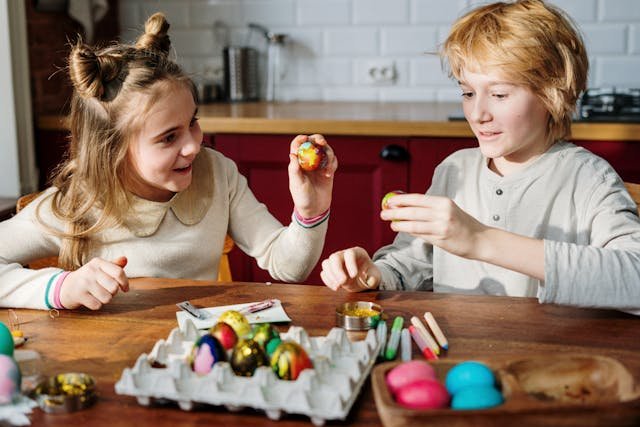
Children with upper-limb prosthetics can benefit from activities like:
- Painting and drawing to practice controlled movements
- Cutting and gluing paper to improve precision
- Building with clay or crafting materials to enhance dexterity
These activities turn prosthetic adaptation into an enjoyable, stress-free experience, helping kids express themselves while developing important skills.
Music and Rhythm Games for Coordination
Playing musical instruments can also be a great way to improve hand movements and coordination. Drums, keyboards, and tambourines are great for children with prosthetics, as they allow for easy participation without requiring fine grip strength.
Pretend Play for Emotional Growth
Children often process emotions through storytelling and role-playing. Pretend play with dolls, action figures, or costumes can help kids build confidence in their prosthetic limb while allowing them to express their feelings in a creative way.
Encouraging Independent Play: Letting Kids Take the Lead
As children become more comfortable with their prosthetic limb, it’s important to encourage independent play, allowing them to explore their abilities on their own terms.
Building Problem-Solving Skills Through Play
Children naturally experiment through play. They figure out how things work, make adjustments, and try different approaches. For kids with prosthetics, independent play encourages problem-solving and adaptability.
For example, if a child with a prosthetic hand is playing with stacking blocks and struggles to pick them up, they may instinctively try adjusting their grip, using their other hand, or modifying how they hold the pieces. This type of problem-solving is essential for adapting to everyday challenges with their prosthetic limb.
Parents and caregivers can support independent play by providing open-ended toys and activities that allow children to experiment and find their own solutions. Some great options include:
- Construction toys like LEGO or magnetic blocks
- Puzzles that require rotating and gripping pieces
- Art activities that involve different textures and materials
The key is to allow the child to take the lead while being there for encouragement and support when needed.
Creating a Play Space That Encourages Movement
A child’s environment plays a big role in how freely they can move and explore. A play area that allows for safe, independent movement helps them feel more confident in using their prosthetic.
Consider setting up:
- A soft, cushioned space for practicing balance and movement
- Accessible shelves and bins with toys that encourage reaching and grasping
- A play area with both sitting and standing activities to encourage different types of movement
When children have a space where they feel free to move, experiment, and play without restriction, they are more likely to gain confidence in using their prosthetic limb.
Using Play to Encourage Daily Independence
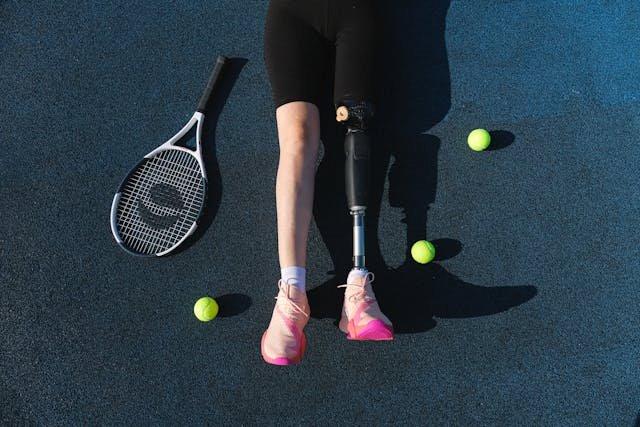
Everyday tasks can feel like play when approached with a fun and engaging mindset. Parents and caregivers can turn daily routines into playful challenges, helping children gain independence while enjoying themselves.
For example:
- Turning dressing into a game – “Let’s see how quickly you can put on your shoes using your prosthetic!”
- Making mealtime interactive – “Can you scoop up your food with your prosthetic before the music stops?”
- Using role-playing games to practice social skills – “Let’s pretend we’re in a restaurant! How would you use your prosthetic to pick up the menu and point to your order?”
By making learning fun, children naturally develop the skills they need for daily life without feeling pressured or frustrated.
Play-Based Therapy: Making Prosthetic Training Fun
While children may need physical therapy and occupational therapy to help them adjust to their prosthetic limb, these sessions don’t have to feel like work. Incorporating play into therapy makes it more engaging, leading to better results and faster adaptation.
Using Games to Strengthen Muscles and Dexterity
Therapists often use interactive games and exercises to help children develop the muscle strength and control needed to use their prosthetic limb effectively. Some popular play-based therapy techniques include:
- Using therapy putty or playdough to build grip strength in a prosthetic hand
- Balancing games like standing on one foot or stepping on different textures to improve stability with a prosthetic leg
- Hand-eye coordination games like catching a ball or using a small hammer to hit pegs
Because play makes learning feel natural and enjoyable, children are more likely to engage fully and make faster progress.
Virtual Reality and Gamified Prosthetic Training
Technology is revolutionizing prosthetic rehabilitation with gamified therapy. Virtual reality (VR) games and motion-based systems allow children to practice using their prosthetic limb in a fun, interactive way.
For example:
- A child using a prosthetic hand might play a VR game that requires them to pick up objects and complete challenges.
- A child with a prosthetic leg can use motion-based games that encourage walking, jumping, and balancing in a virtual world.
These high-tech solutions turn therapy into play, helping children develop better control and confidence in using their prosthetic limb.
Helping Kids Feel Included in Group Play and Social Activities
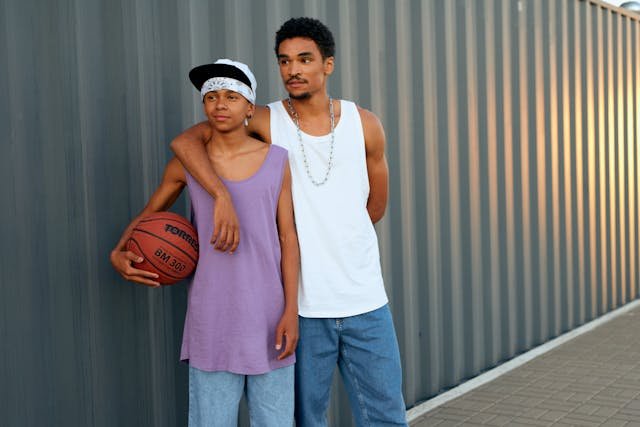
One of the biggest concerns for many parents is how their child will be included in group play and social settings. Encouraging inclusive play helps children with prosthetics feel like part of the team, rather than different from their peers.
Teaching Peers About Prosthetics Through Play
Sometimes, children with prosthetic limbs may face questions or curiosity from classmates and friends. Play provides a natural way to educate other kids in a fun, positive manner.
One great approach is to introduce the prosthetic through interactive play:
- A child can demonstrate how their prosthetic works during a game.
- Teachers can lead inclusive group activities where kids learn how different abilities can be strengths.
- Storytelling and pretend play can introduce prosthetics in a way that feels fun and normal.
By allowing peers to understand and engage with the prosthetic in a playful way, it removes awkwardness and promotes friendship and inclusion.
Encouraging Teamwork in Sports and Group Games
For children with prosthetics, team sports and group games can feel intimidating at first. Parents and educators can help by choosing games that focus on teamwork and strategy rather than speed and strength.
For example:
- Relay races where every child plays a role, not just the fastest runners
- Games like scavenger hunts that require problem-solving and creativity
- Team-building activities that allow kids to work together, rather than compete against each other
By fostering an inclusive environment, children with prosthetic limbs feel more confident participating and forming meaningful friendships through play.
Helping Kids Transition from Early Play to Advanced Activities

As children become more comfortable with their prosthetic limb, they naturally start exploring more complex movements and activities. Encouraging this transition keeps them engaged and challenged, helping them build new skills and interests.
From Simple Games to More Complex Skills
When children first receive a prosthetic limb, play might involve basic grip exercises, gentle movement, and coordination activities. As they grow, parents and caregivers can gradually introduce:
- More precise hand movements, like threading beads or using chopsticks
- More challenging balance activities, such as skateboarding or roller skating
- More advanced sports or outdoor games, such as tennis, rock climbing, or track and field
By allowing children to progress at their own pace, they build the confidence to take on bigger challenges without fear.
Encouraging Self-Directed Play and Exploration
In the beginning, children may need guidance and encouragement to engage in play. Over time, they should be encouraged to explore on their own, choosing activities that interest them.
For example, a child who initially needed help kicking a ball may later decide to join a football team, while another who struggled with fine motor skills might begin enjoying crafting, video games, or playing a musical instrument.
Encouraging children to take control of their play and learning helps them develop problem-solving skills and independence, making them more adaptable in daily life.
Incorporating Play into School and Social Life
As children get older, play becomes more social and structured, often occurring in school, sports teams, or group activities. Parents and educators can help by:
- Ensuring playgrounds and activity spaces are inclusive and accessible
- Encouraging teachers to incorporate adaptive games that allow all children to participate
- Providing opportunities for kids with prosthetics to showcase their abilities, such as school talent shows, art exhibitions, or sports meets
By making sure that play remains an integral part of their school and social life, children feel included, capable, and valued.
The Psychological Benefits of Play for Long-Term Prosthetic Adaptation
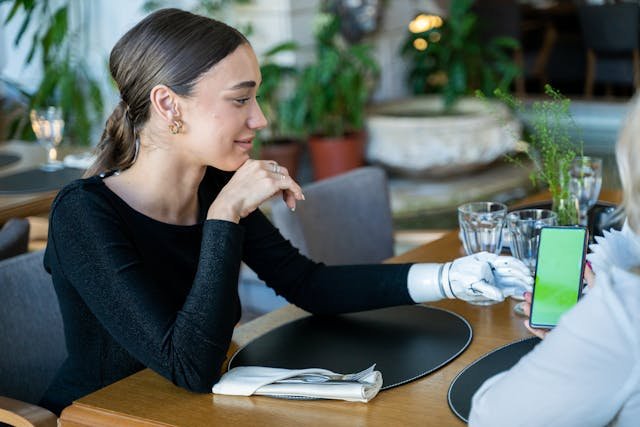
Beyond physical skills, play plays a huge role in a child’s mental and emotional well-being. Children with prosthetic limbs sometimes face insecurities or emotional challenges, and play can help them develop resilience and self-acceptance.
Building Emotional Strength Through Play
Through play, children develop patience, persistence, and problem-solving skills—all of which are essential when adapting to a prosthetic limb. Games that involve trial and error, such as building puzzles, learning a new sport, or playing video games, teach children that failure is just part of learning.
For example, if a child struggles to catch a ball with their prosthetic hand, they may feel frustrated at first. But with encouragement and repeated attempts, they begin to see improvement, reinforcing the idea that they are capable of adapting and overcoming challenges.
Play as a Tool for Reducing Stress and Anxiety
Adapting to a prosthetic limb can sometimes feel overwhelming. Play provides a healthy emotional outlet, allowing children to release stress and focus on fun instead of frustration. Activities like:
- Outdoor play (running, climbing, exploring)
- Art and creative play (drawing, painting, storytelling)
- Music and rhythm games (drumming, dancing, singing)
all help children feel happier, more relaxed, and emotionally balanced.
Encouraging Self-Expression and Identity Development
As children grow, they begin to explore who they are and what makes them unique. Play helps them express themselves and take pride in their abilities, whether that’s through:
- Personalizing their prosthetic limb with colors, stickers, or artwork
- Performing in school plays, talent shows, or public speaking events
- Joining peer groups that celebrate diversity and inclusion
When children see themselves as capable and confident, they approach life with a positive mindset and strong sense of self-worth.
Final Thoughts: Making Play a Part of the Prosthetic Journey
Play is not just about fun—it’s a powerful tool for growth, adaptation, and confidence. When children engage in games, sports, and creative activities, they develop the skills and mindset needed to embrace life with a prosthetic limb.
At Robobionics, we encourage parents and caregivers to incorporate play into daily routines, making prosthetic use feel natural, exciting, and empowering. Every child deserves the chance to explore, move, and create without limits—and with the right approach, play can help them do exactly that.
🚀 Looking for expert advice on helping your child adjust to a prosthetic limb? Book a free consultation with our team today!
💡 Want more tips on making playtime engaging for kids with prosthetics? Contact us now and let’s help your child thrive!



